Life Skills
Equip your child with essential life skills using our Life Skills Home Therapy Resources. These tools teach practical tasks like time management, hygiene, and decision-making, fostering independence and responsibility for everyday living.

Explore the Best Life Skills Resources for Kids
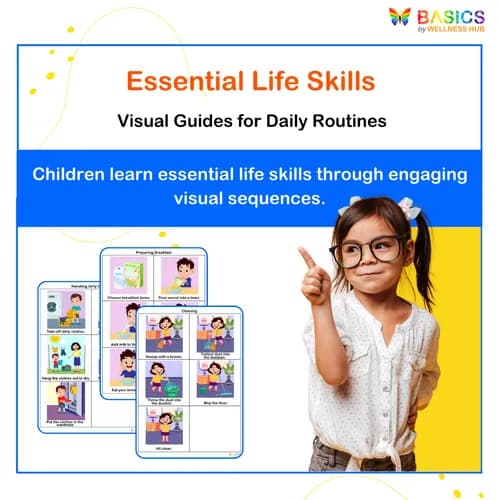
Life Skills Worksheets – 5-Step Routines for Kids
₹ 80.00
₹ 160.00
50% off
4.8 (46 ratings)

Where - Food and Its Origin: Illustrated Worksheet for Kids
₹ 80.00
₹ 160.00
50% off
4.9 (52 ratings)
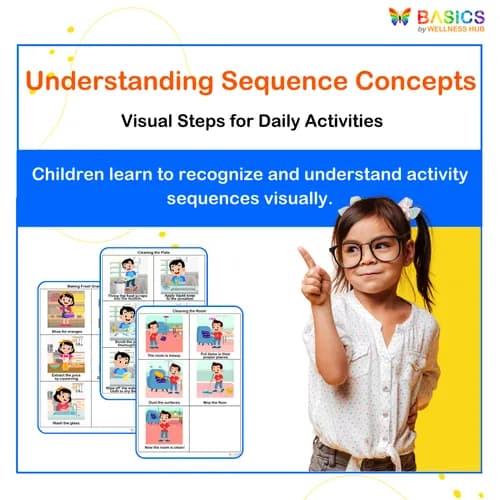
Sequencing Concepts: Visual Worksheets for Daily Activities
₹ 80.00
₹ 160.00
50% off
4.8 (48 ratings)
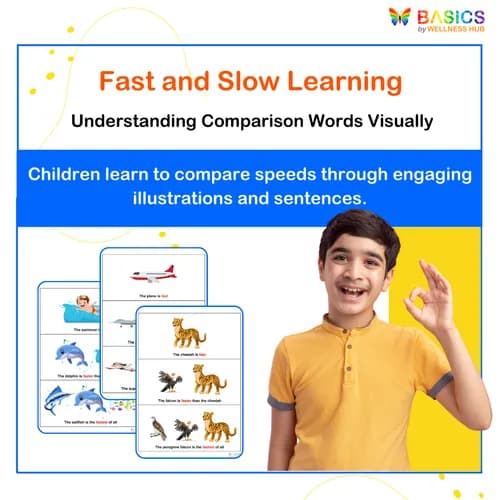
FAST & SLOW – Learn Comparison Words Through Pictures
₹ 80.00
₹ 160.00
50% off
4.8 (48 ratings)
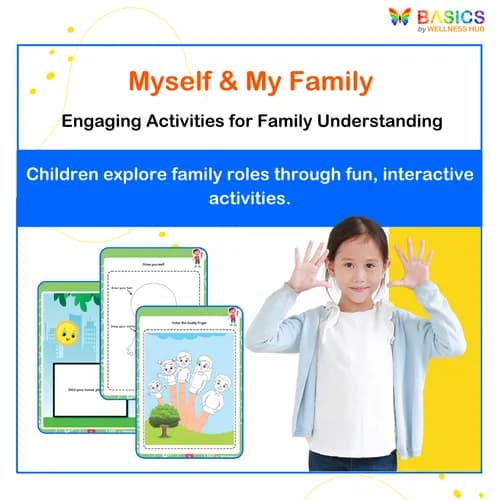
Myself & My Family – Interactive Worksheets for Kids
₹ 80.00
₹ 160.00
50% off
4.8 (48 ratings)

Caucasian Girl: Learn 'My' with Everyday Objects – Printable PDF
₹ 80.00
₹ 160.00
50% off
4.8 (48 ratings)
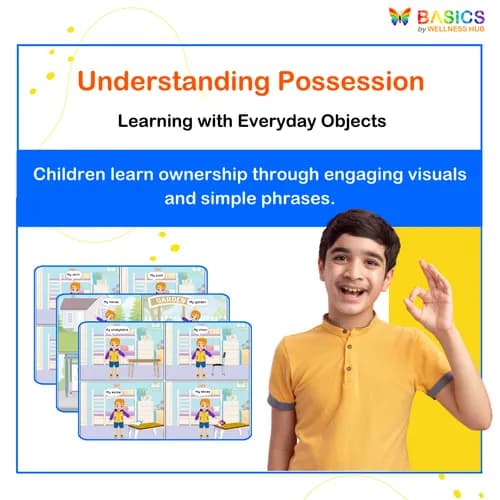
CAUCASIAN BOY: Learn “My” with Everyday Objects – Printable PDF
₹ 80.00
₹ 160.00
50% off
4.9 (52 ratings)
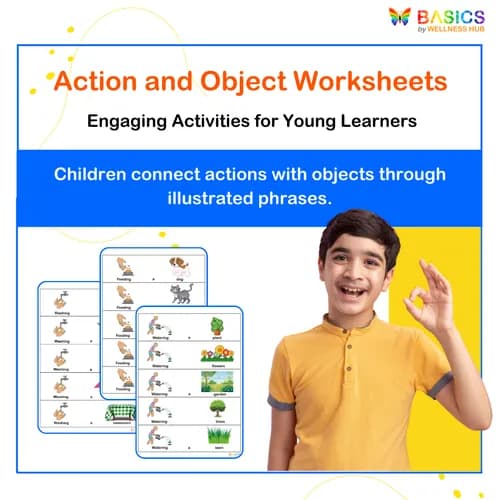
Action + Target Object Worksheet Set – Verb and Object Learning
₹ 80.00
₹ 160.00
50% off
5.0 (56 ratings)
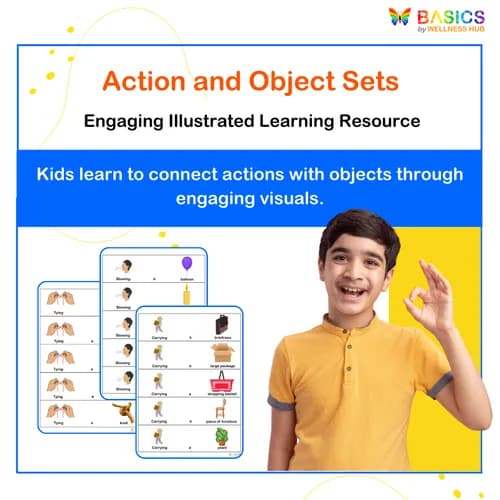
Action + Target Object / Place Worksheet Set – Illustrated Learning Resource
₹ 80.00
₹ 160.00
50% off
4.8 (48 ratings)

Action + Place/Object Worksheet Set – Illustrated Learning Resource
₹ 80.00
₹ 160.00
50% off
4.9 (52 ratings)

Action + Object Pairs Worksheets: Vocabulary Building for Kids
₹ 80.00
₹ 160.00
50% off
5.0 (56 ratings)
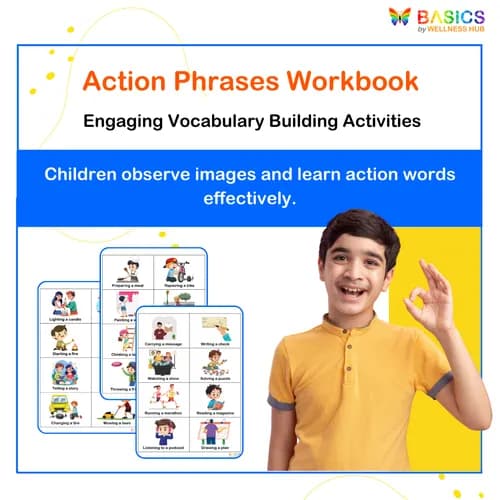
Action Phrases Worksheet: Build Vocabulary with Illustrated Actions
₹ 80.00
₹ 160.00
50% off
4.8 (48 ratings)
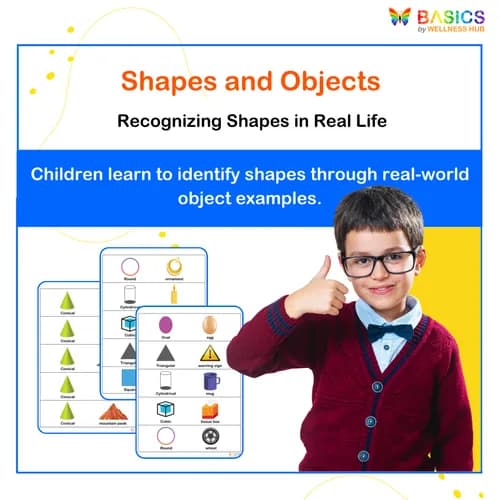
Shapes & Objects: Illustrated Worksheet Set for Kids
₹ 80.00
₹ 160.00
50% off
4.9 (52 ratings)
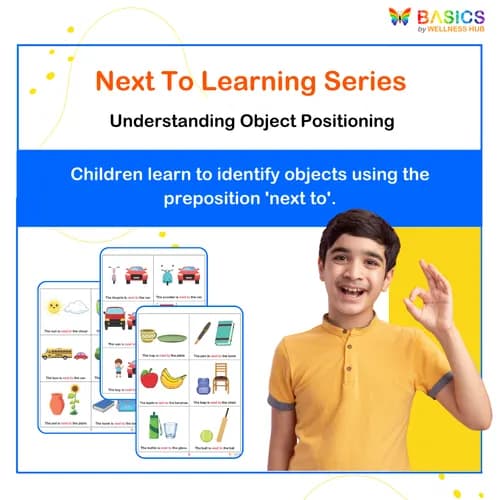
NEXT TO – Learn Object Position with “Next To”
₹ 80.00
₹ 160.00
50% off
4.8 (48 ratings)
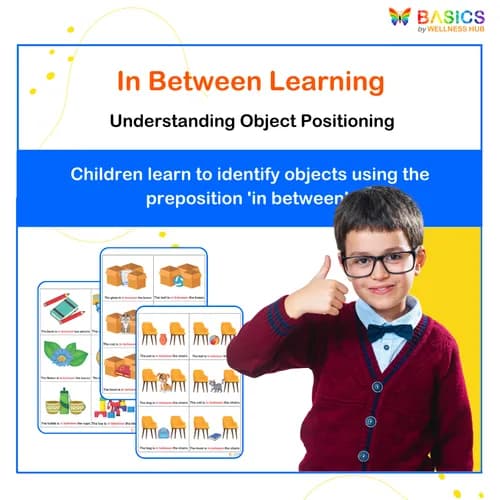
In Between – Learn Object Position with Illustrated Examples
₹ 80.00
₹ 160.00
50% off
4.9 (52 ratings)
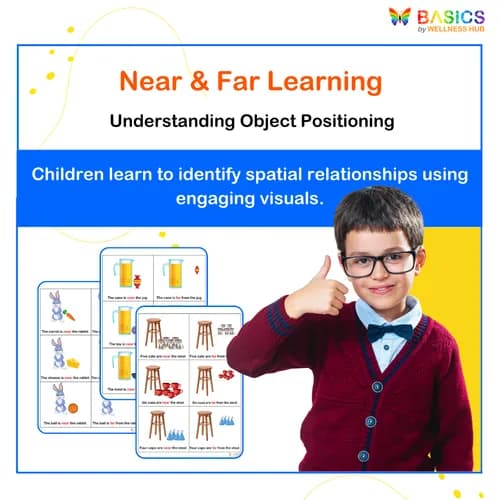
NEAR & FAR – Learn Object Position with Prepositions
₹ 80.00
₹ 160.00
50% off
5.0 (56 ratings)
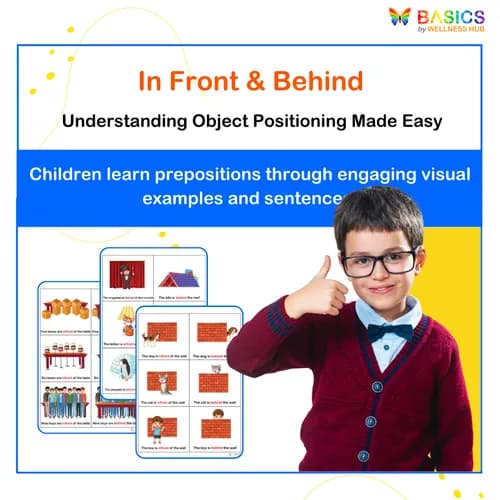
In Front & Behind – Learn Object Position with Visual Examples
₹ 80.00
₹ 160.00
50% off
4.8 (48 ratings)
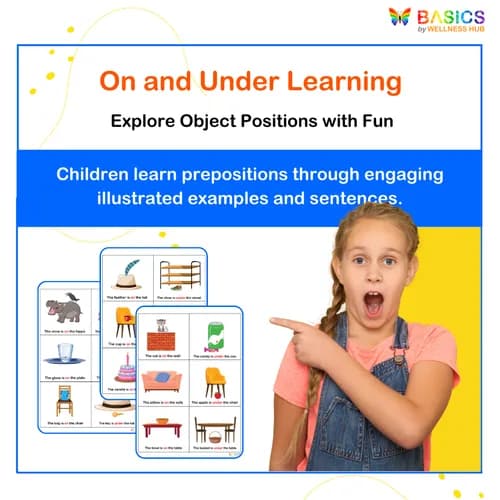
ON & UNDER: Mixed Object Sets – Prepositions Activity for Kids
₹ 80.00
₹ 160.00
50% off
4.9 (52 ratings)

ON & UNDER: Everyday Objects – Printable PDF for Kids
₹ 80.00
₹ 160.00
50% off
5.0 (56 ratings)
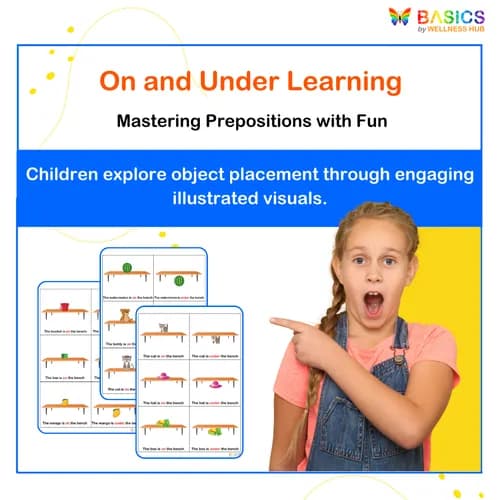
ON & UNDER: Basic Object Position – Printable PDF for Kids
₹ 80.00
₹ 160.00
50% off
4.8 (48 ratings)
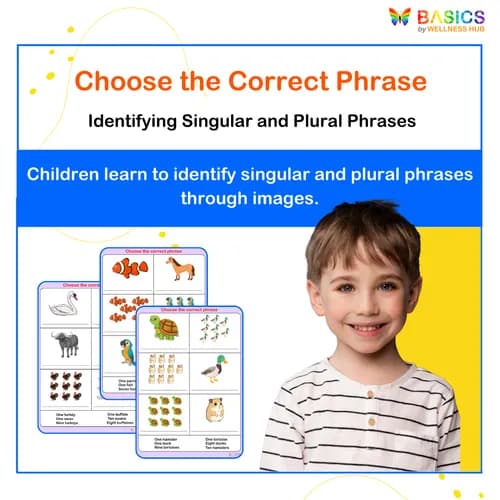
Choose the Correct Phrase – Singular and Plural Worksheet Set
₹ 80.00
₹ 160.00
50% off
4.8 (48 ratings)
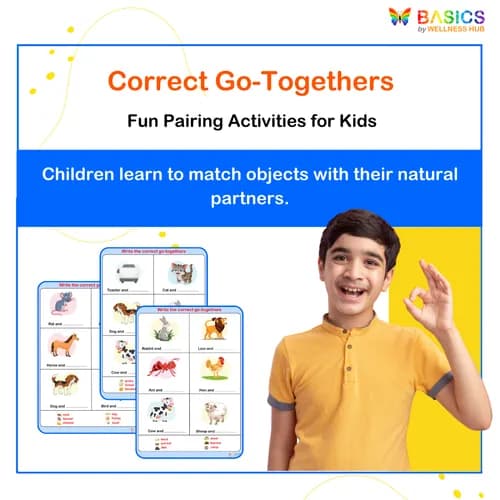
Write the Correct Go-togethers – Vocabulary Building Activity for Kids
₹ 80.00
₹ 160.00
50% off
5.0 (56 ratings)
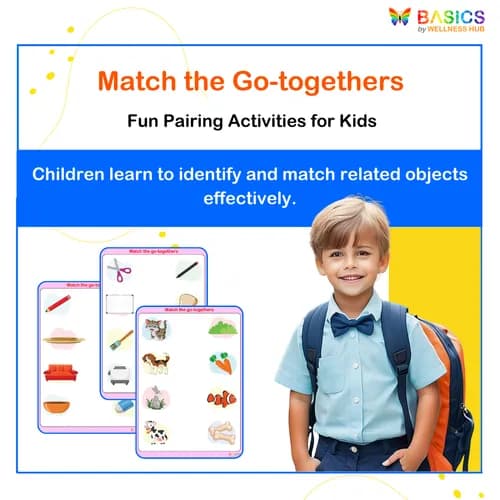
Match the Go-togethers: Illustrated PDF for Object Pairing Activities
₹ 80.00
₹ 160.00
50% off
4.8 (48 ratings)

THIS IS MY… – Fill in the Blank Using Options (African Boy & Girl)
₹ 80.00
₹ 160.00
50% off
4.9 (52 ratings)
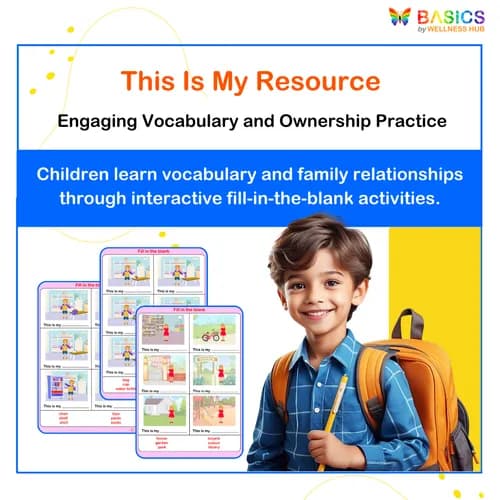
THIS IS MY… – Fill in the Blank Activity for Kids
₹ 80.00
₹ 160.00
50% off
5.0 (56 ratings)

THIS IS MY… – Fill in the Blank with Illustrated Options
₹ 80.00
₹ 160.00
50% off
4.8 (48 ratings)
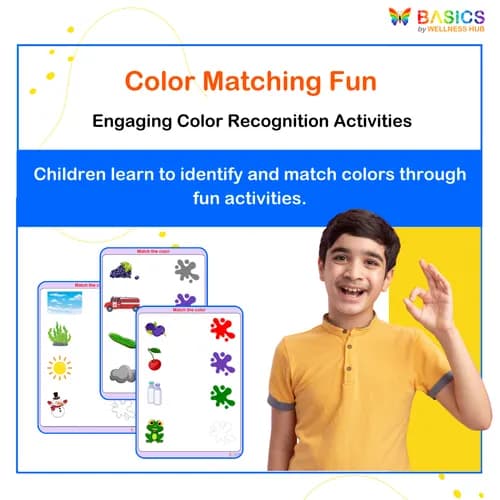
Match the Color – Identify and Match Objects with Their Colors
₹ 80.00
₹ 160.00
50% off
4.9 (52 ratings)
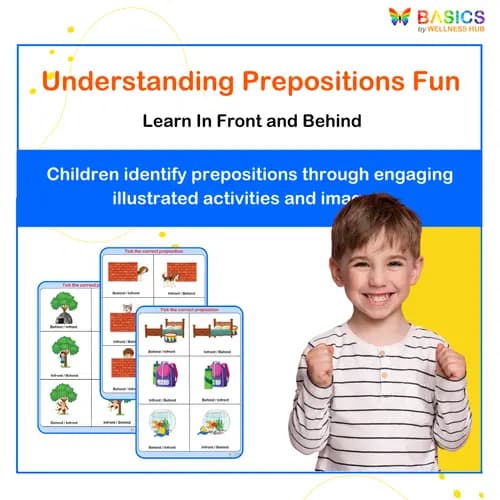
In Front and Behind Prepositions Activity: Printable PDF for Kids
₹ 80.00
₹ 160.00
50% off
4.8 (48 ratings)
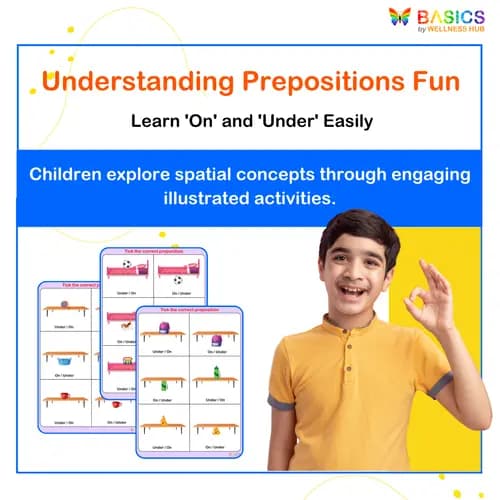
On and Under Prepositions Activity: Printable PDF for Kids
₹ 80.00
₹ 160.00
50% off
4.9 (52 ratings)
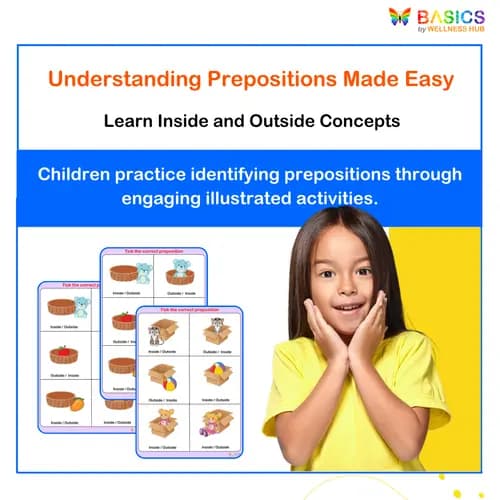
Inside and Outside Prepositions Activity: Printable PDF for Kids
₹ 80.00
₹ 160.00
50% off
4.8 (48 ratings)
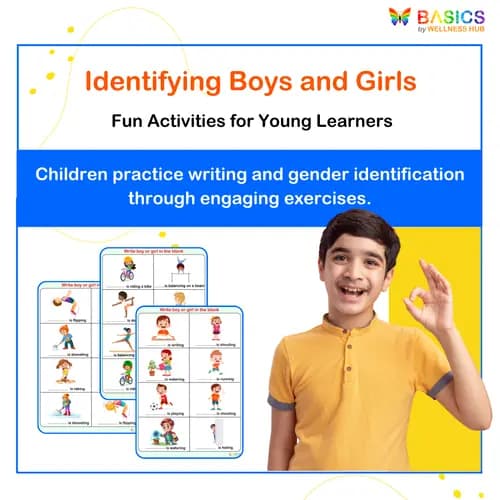
Identifying Boys and Girls: Printable PDF for Observation and Writing
₹ 80.00
₹ 160.00
50% off
4.9 (52 ratings)
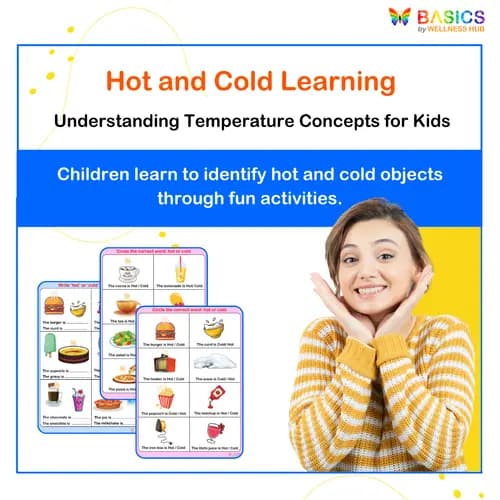
Hot and Cold Objects Activity: Printable PDF for Kids
₹ 80.00
₹ 160.00
50% off
5.0 (56 ratings)
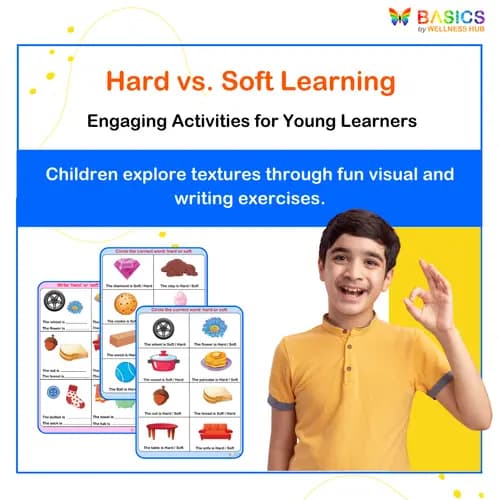
Hard and Soft Objects Worksheets – Printable PDF for Kids
₹ 80.00
₹ 160.00
50% off
4.9 (52 ratings)
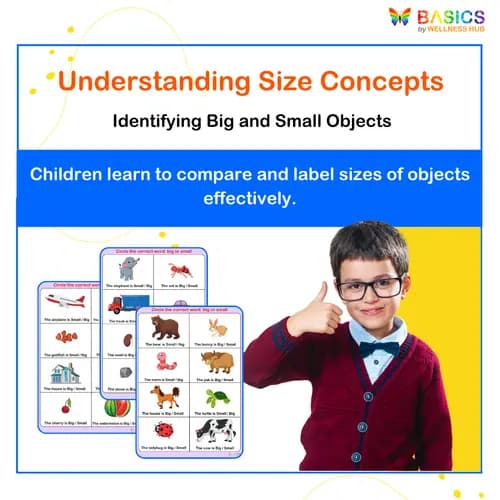
Big and Small Activity Book: Understanding Size Concepts for Kids
₹ 80.00
₹ 160.00
50% off
5.0 (56 ratings)
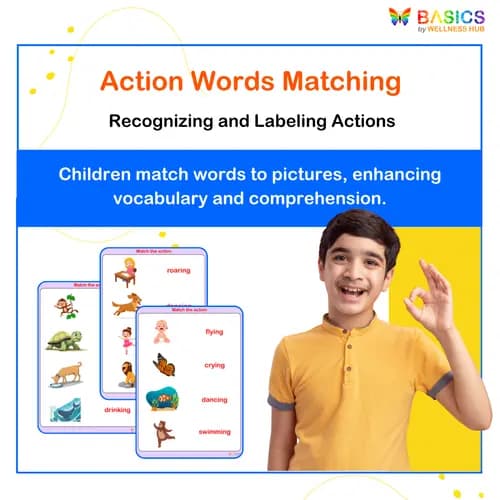
Action Words Matching Activity: Printable PDF for Kids
₹ 80.00
₹ 160.00
50% off
5.0 (56 ratings)

Clothing and Accessories Flashcards for Kids – Printable PDF
₹ 80.00
₹ 160.00
50% off
4.9 (58 ratings)

Household Items Flashcards for Kids – Printable PDF
FREE
₹160
100% off
4.9 (48 ratings)

Professions Flashcards for Kids – Explore Careers Printable PDF
₹ 80.00
₹ 160.00
50% off
4.6 (54 ratings)
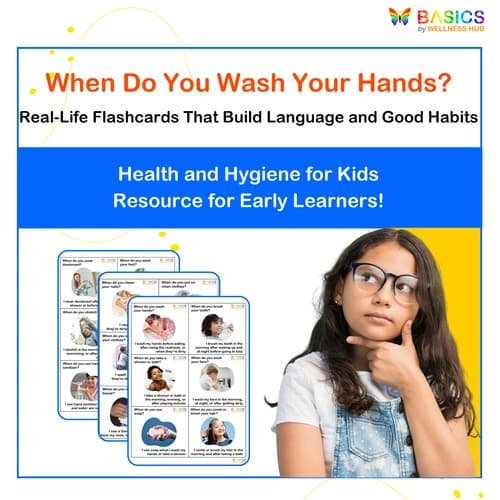
When Questions Flashcards – Health and Hygiene for Kids (Printable PDF)
₹ 80.00
₹ 160.00
50% off
4.9 (58 ratings)
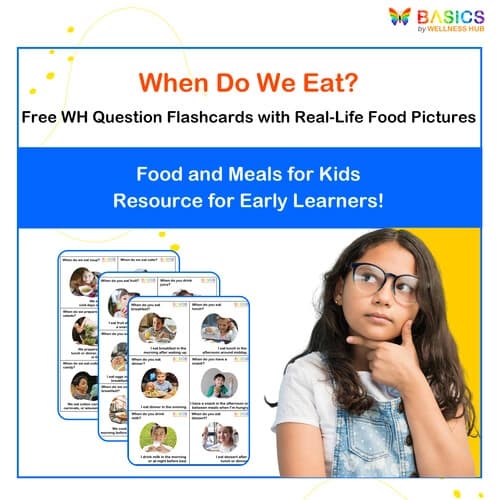
When Questions Flashcards – Food and Meals for Kids (Free Printable PDF)
FREE
₹160
100% off
4.8 (54 ratings)
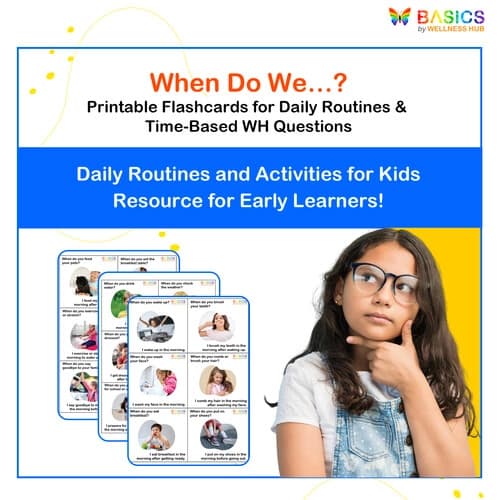
When Questions Flashcards – Daily Routines and Activities for Kids (Printable PDF)
₹ 80.00
₹ 160.00
50% off
4.8 (42 ratings)
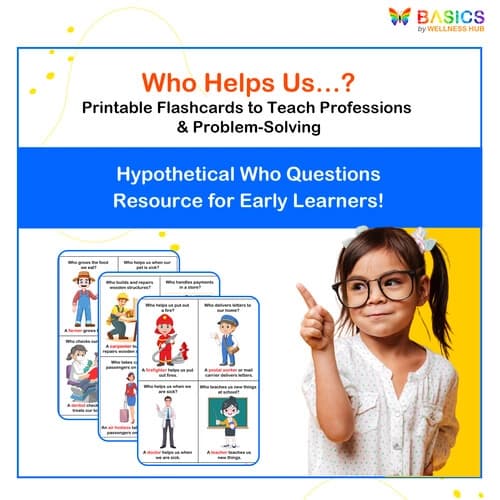
Hypothetical Who Questions – Professions Flashcards for Kids (Printable PDF)
₹ 80.00
₹ 160.00
50% off
4.9 (56 ratings)
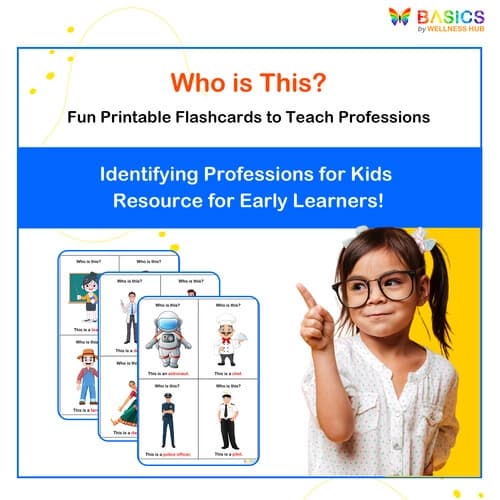
Who Questions Flashcards – Identifying Professions for Kids (Printable PDF)
₹ 80.00
₹ 160.00
50% off
4.8 (52 ratings)
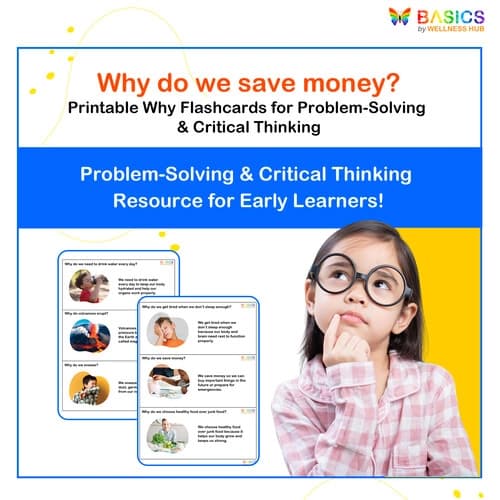
Why Questions Flashcards – Problem-Solving & Critical Thinking for Kids
₹ 80.00
₹ 160.00
50% off
4.9 (44 ratings)
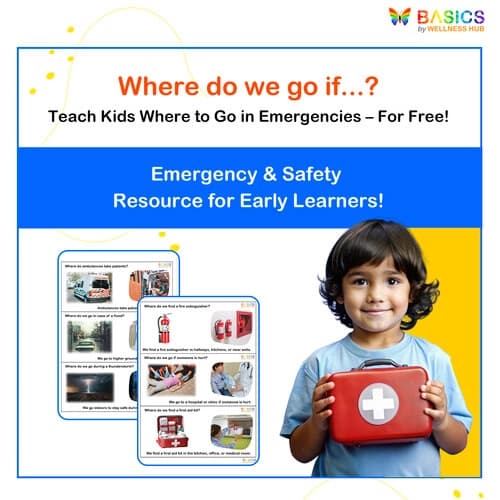
Where Do We Go? WH Questions – Emergency & Safety (Free Printable PDF)
FREE
₹160
100% off
4.8 (60 ratings)
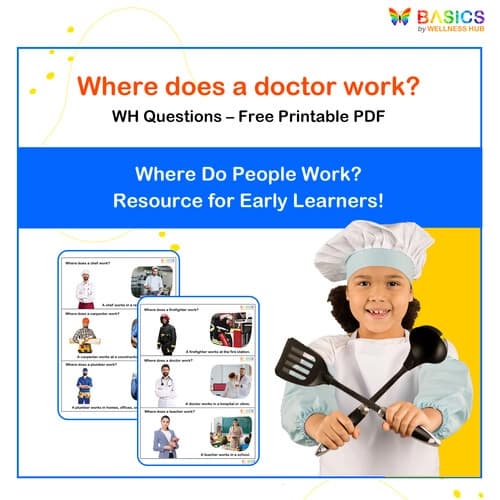
Where Do People Work? WH Questions – Printable Flashcards on Jobs & Places
₹ 80.00
₹ 160.00
50% off
4.8 (52 ratings)
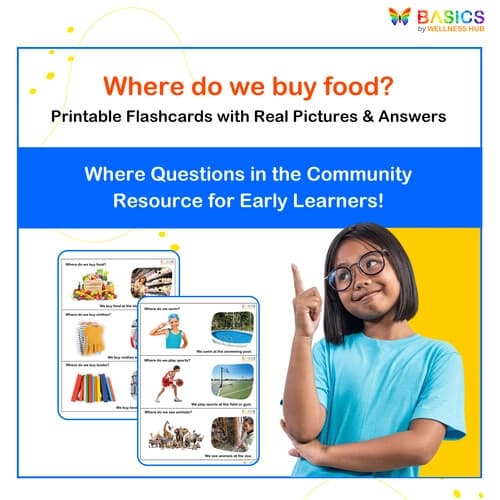
Where Questions in the Community – Printable Flashcards with Real-Life Answers
₹ 80.00
₹ 160.00
50% off
4.6 (44 ratings)
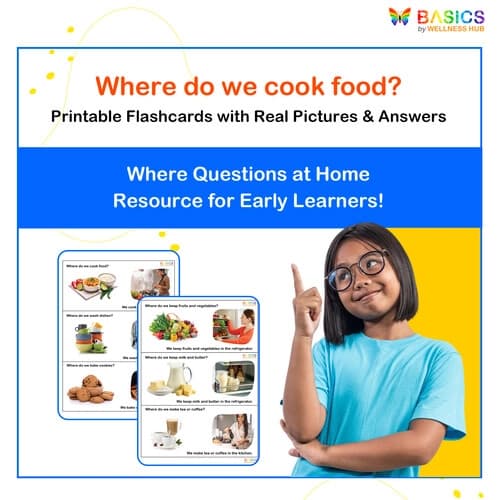
Where Questions at Home – Printable Flashcards with Real-Life Answers
₹ 80.00
₹ 160.00
50% off
4.9 (58 ratings)
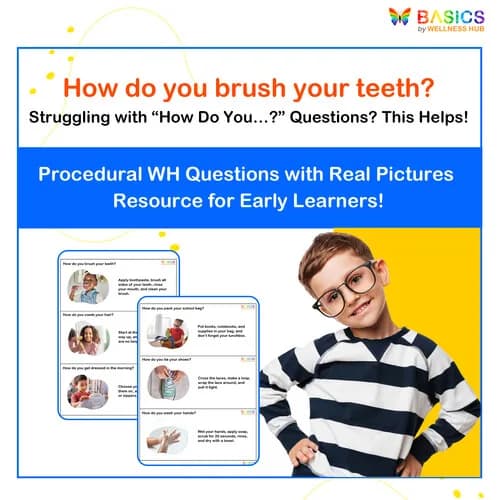
How Do You…? Procedural WH Questions with Real Pictures (Printable PDF)
₹ 80.00
₹ 160.00
50% off
4.7 (50 ratings)
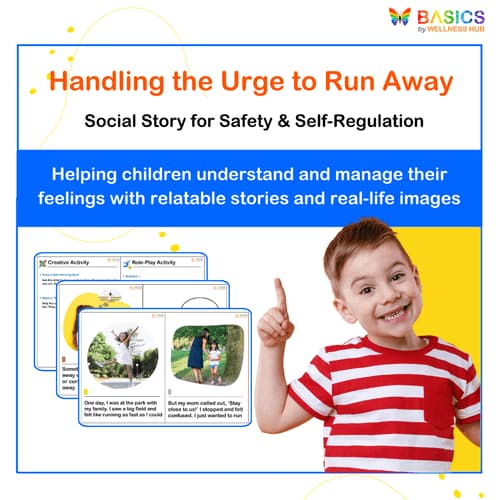
Handling the Urge to Run Away – Social Story for Safety & Self-Regulation
₹ 80.00
₹ 160.00
50% off
4.8 (44 ratings)
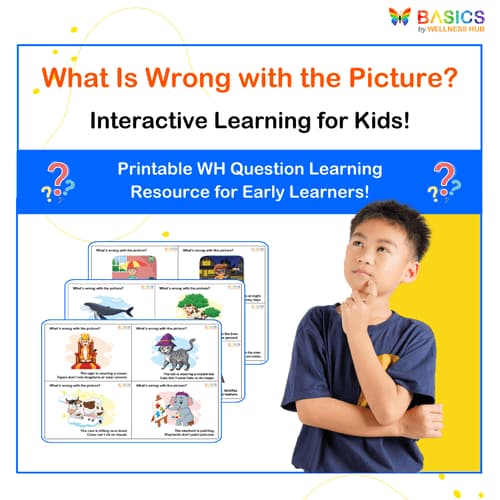
What Is Wrong with the Picture? – Fun Learning with Pictures for Kids
₹ 80.00
₹ 160.00
50% off
4.6 (60 ratings)

What Do You Do at the? WH Questions & Places – Printable PDF
₹ 80.00
₹ 160.00
50% off
4.9 (56 ratings)

What Do You Do With? WH Questions & Functional Object Use – Printable PDF
₹ 80.00
₹ 160.00
50% off
4.8 (52 ratings)

2-Step Sequencing Cards: Free Printable PDF for Daily Activities
FREE
₹160
100% off
4.9 (48 ratings)
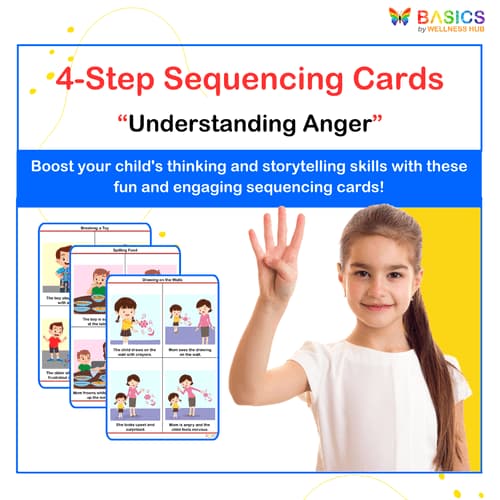
4-Step Sequencing Cards: Understanding Anger – Printable PDF
₹ 80.00
₹ 160.00
50% off
4.8 (44 ratings)
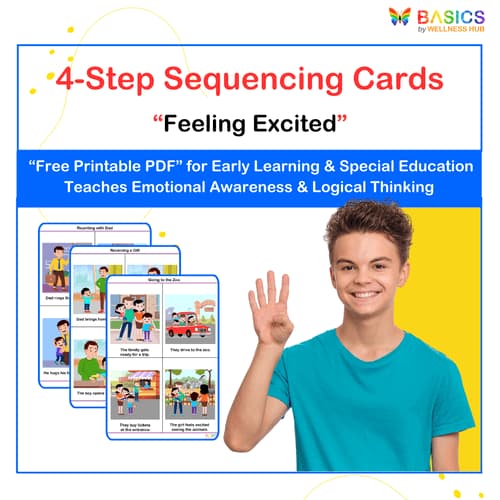
4-Step Sequencing Cards: Free Printable PDF for Feeling Excited
FREE
₹160
100% off
4.7 (60 ratings)
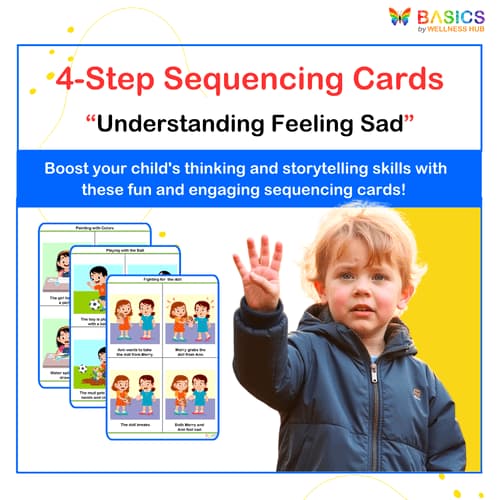
4-Step Sequencing Cards: Printable PDF for Understanding Feeling Sad
₹ 80.00
₹ 160.00
50% off
4.6 (56 ratings)
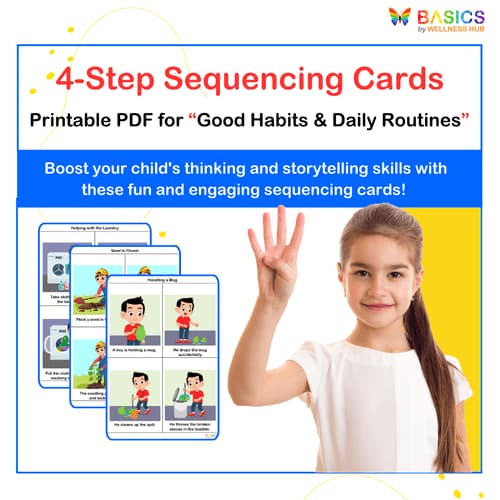
4-Step Sequencing Cards: Printable PDF for Good Habits & Daily Routines
₹ 80.00
₹ 160.00
50% off
4.9 (52 ratings)
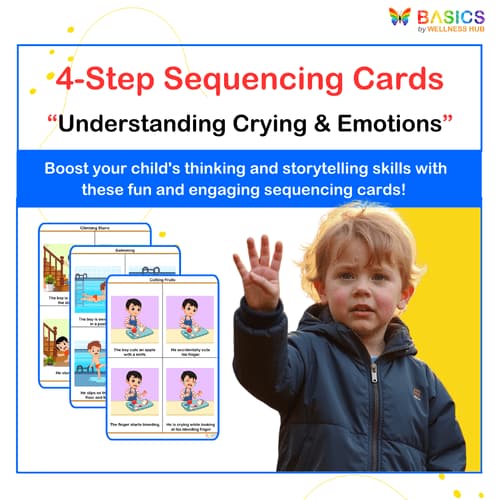
4-Step Sequencing Cards: Printable PDF for Understanding Crying & Emotions
₹ 80.00
₹ 160.00
50% off
4.8 (46 ratings)
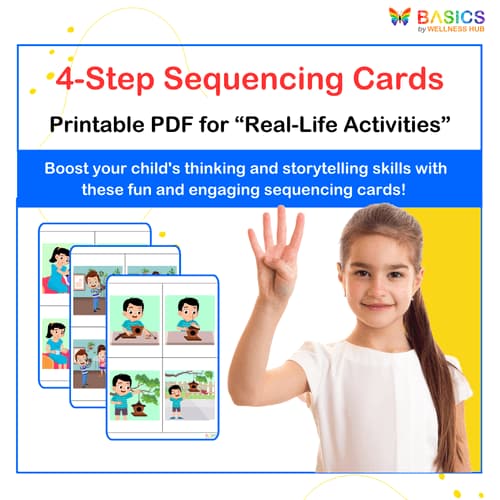
4-Step Sequencing Cards: Printable PDF for Real-Life Activities
₹ 80.00
₹ 160.00
50% off
4.7 (42 ratings)
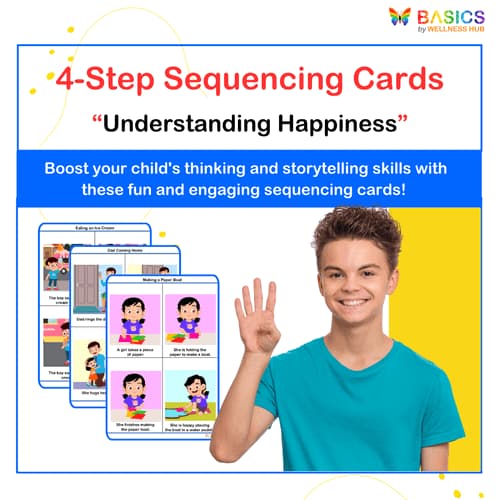
4-Step Sequencing Cards: Printable PDF for Understanding Happiness
₹ 80.00
₹ 160.00
50% off
4.6 (60 ratings)

3-Step Sequencing Cards: Printable PDF for Early Learning
₹ 80.00
₹ 160.00
50% off
4.9 (56 ratings)
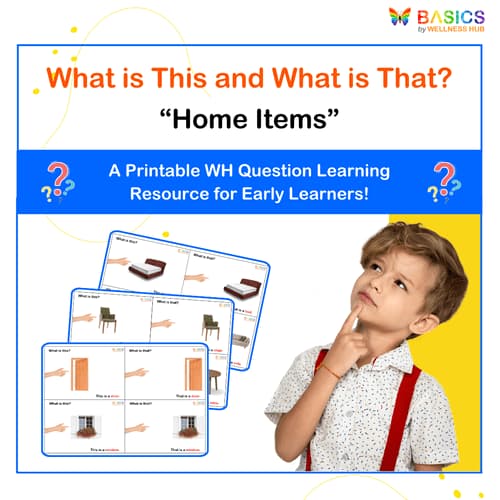
What is This and What is That? - Home Items Learning PDF for Kids WH
₹ 80.00
₹ 160.00
50% off
4.8 (52 ratings)

Sentences with Big and Small: Illustrated Learning PDF for Kids
₹ 80.00
₹ 160.00
50% off
4.8 (52 ratings)

Flying in a Plane: A Social Story for Kids
₹ 80.00
₹ 160.00
50% off
4.6 (44 ratings)

At the Mall: A Social Story for Kids
₹ 80.00
₹ 160.00
50% off
4.9 (60 ratings)

Greeting People: A Social Story for Kids
₹ 80.00
₹ 160.00
50% off
4.8 (56 ratings)

Think It or Say It: Social Etiquette for Kids
₹ 80.00
₹ 160.00
50% off
4.7 (52 ratings)

Think It or Say It: Problem-Solving Skills Guide
₹ 80.00
₹ 160.00
50% off
4.6 (48 ratings)

Think It or Say It: Gratitude and Appreciation Guide
₹ 80.00
₹ 160.00
50% off
4.9 (44 ratings)

Think It or Say It: Family Dynamics Guide
₹ 80.00
₹ 160.00
50% off
4.8 (58 ratings)
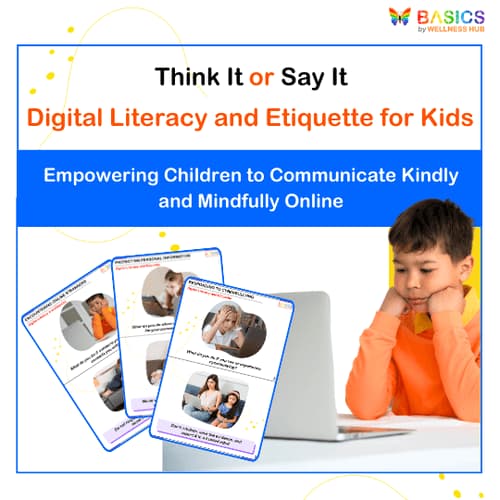
Think It or Say It: Digital Literacy and Etiquette
₹ 80.00
₹ 160.00
50% off
4.8 (42 ratings)
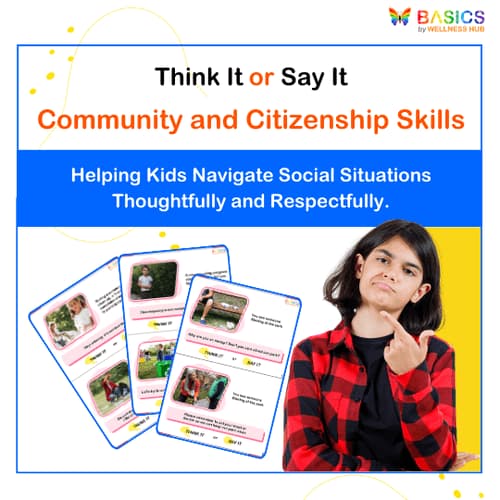
Think It or Say It: Community and Citizenship Skills
₹ 80.00
₹ 160.00
50% off
4.7 (60 ratings)
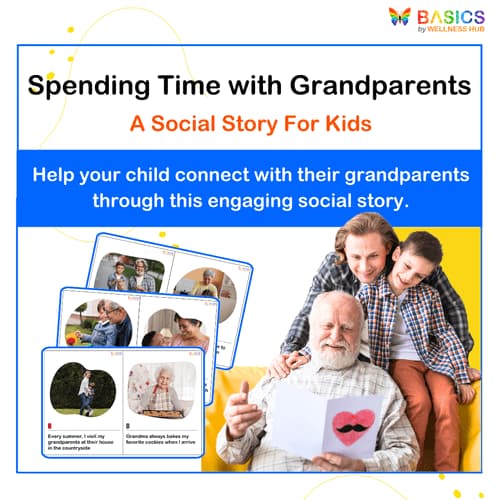
Spending Time with Grandparents: A Social Story for Kids
₹ 80.00
₹ 160.00
50% off
4.6 (56 ratings)

Keeping My Teeth Healthy: A Social Story for Kids
₹ 80.00
₹ 160.00
50% off
4.9 (52 ratings)

Coping with Changes in Routine: Social Story for Kids
₹ 80.00
₹ 160.00
50% off
4.6 (58 ratings)
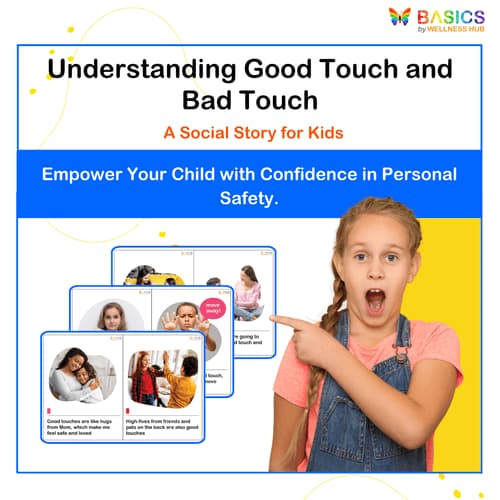
Understanding Good Touch and Bad Touch - A Child Safety Social Story
₹ 80.00
₹ 160.00
50% off
4.7 (46 ratings)

My Siblings: Understanding and Caring for Each Other
₹ 80.00
₹ 160.00
50% off
4.8 (52 ratings)

Making New Friends: Social Story for Kids
₹ 80.00
₹ 160.00
50% off
4.6 (44 ratings)

Favorite Things: Conversation Cards for Kids Explore Interests and Favorites!
₹ 80.00
₹ 160.00
50% off
4.7 (54 ratings)

Family and Friends: Conversation Cards for Kids Explore Bonds, Traditions, and Fun!
₹ 80.00
₹ 160.00
50% off
4.9 (46 ratings)

Daily Routines: Conversation Cards for Kids Explore Everyday Activities with Fun Questions
₹ 80.00
₹ 160.00
50% off
4.8 (42 ratings)

Global Traditions: Conversation Cards for Kids Explore Cultures and Holidays Through Fun Questions
₹ 80.00
₹ 160.00
50% off
4.6 (52 ratings)

Fruits Flashcards for Kids: Free Printable PDF
FREE
₹160
100% off
4.7 (58 ratings)

Indian Cuisine Flashcards for Kids: Free Printable PDF
₹ 80.00
₹ 160.00
50% off
4.9 (50 ratings)

Vegetables Flashcards for Kids: Free Printable PDF
FREE
₹160
100% off
4.7 (46 ratings)

Conversation Cards - Body Parts and Senses: Engage Kids in Learning About Their Bodies
₹ 80.00
₹ 160.00
50% off
4.8 (36 ratings)
Real Parent Success Stories – How Life Skills Resources Help Kids Thrive
Our resources have positively impacted families and therapists, helping children make meaningful progress in speech and language development. Here’s what some of our users have shared:
The personal care flashcards have been a great help. My daughter now enjoys brushing her teeth and getting ready on her own. It’s amazing to see her gaining independence.
Alice, Parent
These testimonials reflect how our resources make speech and language learning accessible and effective, empowering children and giving parents the confidence to support their growth.
Detailed Description
Introduction to Life Skills Development Resources
Life skills are fundamental for building independence, confidence, and responsibility in children. Developing skills in personal care, decision-making, safety, and daily routines allows children to navigate everyday tasks with confidence. Our life skills resources provide structured activities that help children learn self-care, time management, problem-solving, and basic safety practices. These tools empower parents, educators, and therapists to support children in becoming self-sufficient and capable, providing them with skills that will benefit them throughout their lives.
How Our Resources Aid in Life Skills Growth
Our life skills resources are designed to cover various aspects of daily living and personal independence. Flashcards and social stories introduce children to real-life situations, such as getting dressed, brushing teeth, and managing emotions. Safety activities teach children how to stay safe in different environments, while decision-making cards encourage thoughtful choices. These resources provide children with hands-on, practical experiences that enhance their ability to navigate the world independently and responsibly.
Types of Life Skills Resources We Offer
Personal Care and Hygiene Activities: Our personal care resources teach children essential hygiene skills, such as washing hands, brushing teeth, and dressing themselves. Through step-by-step guides and interactive activities, children learn to perform these tasks independently, building confidence in their personal care routines.
Safety and Awareness Flashcards: Safety flashcards cover topics like road safety, stranger danger, and home safety. These cards introduce children to safety concepts and actions, helping them understand how to stay safe in various situations and respond appropriately to potential dangers.
Decision-Making and Problem-Solving Cards: Decision-making cards guide children through common choices, helping them evaluate options and understand consequences. These activities teach children to make thoughtful, responsible decisions, developing problem-solving skills that they’ll use daily.
Daily Routines and Time Management Tools: Our daily routine resources help children understand the structure of a typical day, from morning routines to bedtime habits. By practicing routines, children learn time management, responsibility, and the importance of following a schedule, which is essential for school readiness and family routines.
Who Can Use These Resources?
Our life skills resources are versatile and beneficial for a variety of users:
Parents: Use these resources at home to help children build independence in personal care and daily routines in a supportive environment.
Teachers: Integrate these resources into the classroom to teach children self-management skills, helping them become more responsible and prepared for school activities.
Therapists: Apply these tools in therapy sessions for children who may need additional support in developing life skills, providing targeted practice in a structured setting.
These resources are designed to be user-friendly and adaptable, making it easy for anyone working with children to support their growth toward independence and self-confidence.
Benefits of Life Skills Development Activities at Home
Practicing life skills at home allows children to develop independence and responsibility in a familiar environment. These resources provide parents with structured ways to teach children personal care, safety awareness, and time management. For children with developmental needs, life skills activities offer consistent, focused practice that builds self-confidence and prepares them for daily tasks. By integrating life skills into everyday routines, parents can help children learn essential skills that will empower them throughout their lives.
Tips for Using Life Skills Resources Effectively
Using our life skills resources effectively can empower children to become independent, responsible, and confident. Here are some practical tips:
Introduce One Skill at a Time: Begin with one skill, such as brushing teeth or hand washing, to avoid overwhelming your child. Gradually introduce new skills as they gain confidence.
Incorporate Skills into Daily Routines: Practice life skills during daily routines. For instance, involve your child in setting the table or tidying up their room, making these tasks part of their everyday responsibilities.
Make Learning Interactive: Use flashcards, role-playing, and step-by-step guides to keep the learning process engaging. Interactive methods make it easier for children to remember and apply what they’ve learned.
Reinforce Skills through Repetition: Consistent practice helps children master life skills. Daily repetition of routines, such as morning hygiene or safety habits, builds confidence and memory.
Celebrate Progress and Effort: Recognize your child’s effort and achievements, no matter how small. Positive reinforcement encourages them to continue practicing and mastering new skills.
Real-Life Examples of Life Skills Development with Our Resources
Our life skills resources provide structured, engaging ways to help children learn independence, safety, and responsibility. Here are some examples of how they can be used:
Building Hygiene Habits with Personal Care Activities: A parent might use Personal Care Flashcards to teach a child step-by-step routines for brushing teeth and washing hands. This practice builds confidence in self-care and reinforces hygiene habits that are essential for their well-being.
Practicing Safety with Flashcards: A teacher might use Safety Flashcards in the classroom to discuss topics like road safety and stranger awareness. This familiarizes children with safe practices and helps them feel more prepared for various environments.
Teaching Choices with Decision-Making Cards: A therapist might use Decision-Making Cards to guide a child in making choices, such as choosing between two snacks. This activity encourages children to consider their options, promoting independence and responsible decision-making.
Building Time Management Skills with Routine Tools: Parents could use Daily Routine Cards to help children understand the structure of their day, from waking up to bedtime. This helps children learn the importance of following routines and staying organized.
These examples demonstrate how our resources can support various aspects of life skills development, helping children become more self-sufficient and prepared for everyday tasks.
FAQs
Q1: How do I start using these resources with my child?
A1: Begin with one area, such as personal care or safety, and introduce one resource at a time. Gradually build upon these skills as your child becomes more comfortable.
Q2: Which resources are best for teaching independence?
A2: Our Daily Routine Tools and Personal Care Flashcards are ideal for building independence. These resources teach children to manage routines and perform tasks on their own.
Q3: How often should I use these activities?
A3: Consistent, short sessions work best. Aim for daily practice of life skills, such as personal hygiene or following a routine, to reinforce learning and build confidence.
Q4: Are these resources suitable for children with developmental needs?
A4: Yes, our resources are designed to support children with a range of needs, providing structured guidance and interactive learning to promote independence.
Related Topics and Further Learning for Parents
For parents seeking additional support in teaching life skills, the BASICS app offers courses and resources on various aspects of independent living and personal care:
Developing Personal Care Routines: A course that covers essential hygiene routines and personal care, helping children build independence and self-confidence in daily activities.
Safety Awareness and Practices for Young Learners: Resources focused on teaching children about safety in different environments, including road safety, home safety, and stranger awareness.
Decision-Making and Problem-Solving Skills: A guide to teaching children how to make choices, understand consequences, and develop responsible decision-making habits.
Building Daily Routines and Time Management: Tools that introduce time management skills, teaching children the importance of following a routine and organizing their day.
These additional resources offer a comprehensive approach to life skills development, equipping parents with the tools needed to foster independence and self-sufficiency in their child.